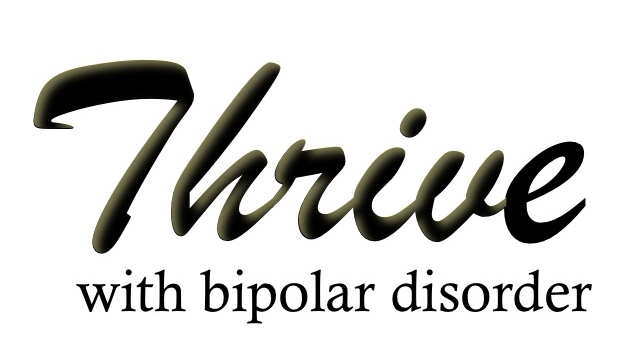Before we get started, I want to help everyone understand why in my writing I use the terms “we” and “us”. The key reason for doing this is because stigmatization, judgment and the fear people have of people living with bipolar disorder can be very isolating and create a great deal of self-shame and self-fear. I use “we” and us” to remove stigma, judgment and fear in order to create belonging and acceptance. I also use “we” and “us” so it is very clear that I am writing about an experience that I belong to as well.
This blog is in response to someone asking for help to better be able to help her loved one who is struggling with rapid cycling…and I’m broadening this to include both rapid cycling and mania.
#1 Thing you can do to help the one you love is by taking really good care of yourself – emotionally, mentally, physically, your health etc.
It is incredibly hard to help someone who is experiencing mania or rapid cycling. The reason why hospitalization exists, besides being at harm to ourselves and others, is to slow us down. Hospitalization removes whatever supports mania and medically slows us down and forces our bodies and mind to stop running a million miles a minute and rest. Being forced to slow down can feel like death or simply horrible.
The goal of this blog is to help intervene before hospitalization is needed.
This blog is about how to help someone you love slow down and gain some control during mania or mixed episodes without hospitalization. It is not easy.
A gem I have gained from my experience from experiencing mania is how powerful the mind-body connection really is. When my mind and emotions are going a million miles a minute there is no rational way to THINK myself out of this process. However, my body can only go so fast. I learned that if I can slow down my body and gain awareness and control in my body that it has a profound affect on my mind.
What I hope to share are some tools that can be helpful to the ones you love that I have learned from experience and professional education that have been successful in slowing down mania or cycling and building awareness and control.
Help loved ones gain control of their mind through their bodies by:
- Shifting our attention to our breath.
When we focus on our breathing it brings our attention away from what is taking place around us and in our minds. Our attention goes directly to expanding and contracting our lungs. Our attention goes to breathing as deeply into our bodies as we can and releasing our breath.
By focusing on our breathing we experience control. Our awareness decides how deeply we breathe. We have the power to control our breath which can either slow down our body or speed it up.
GOAL: Breathe deeply and slow down the breath which will regulate the rest of the body and the mind.
How you can help:
Don’t judge, label or say things like “You’re out of control. You’re manic. You’re crazy etc”
Instead say something like, “I’m feeling scared/sad/down/lost/frustrated etc, will you hold my hand (or sit beside me) and breathe with me?”
- Creating a safe place for us to contain ourselves
When we feel out of control in our bodies, a long tight hug really helps. There is something incredibly containing about a hug that is grounding for a person who feels out of control.
The hug not only helps us stand, but it also helps us to emotionally center ourselves. We feel emotionally connected, present and a hug is an act of love.
GOAL: Hug your loved one until they let go, don’t let them go. By hugging them they feel safe, wanted and loved. This containment creates self-control in both their body and mind.
How you can help:
Simply say, “I want to hug you, may I give you a hug?”
- With your words
When we are manic or rapid cycling we don’t respond well at all to words, we are not able to be rational…especially when sentences start with the word “You…”.
GOAL: To not make us feel bad about ourselves, when we are manic or rapidly cycling and are out of control…we already feel bad about ourselves.
How you can help:
Make “I” statements. Start your sentences with the word “I”. For example, “I feel scared when…” “It concerns me when…” “It’s problematic for me when…” etc.
- Giving us space.
When you can’t express how you are feeling, it is incredibly frustrating when someone keeps asking you “What’s wrong?”, “How are you feeling?”, “Are you okay?” etc.
GOAL: Give us space so we can ride out the emotional rollercoaster.
How you can help:
Help your loved one create a space when they are okay that feels safe to them. This space will be where they go when they experience an emotional rollercoaster.
- Forgiveness
Mania, depression and mixed episodes cause us to express ourselves and emotion in ways that are very hurtful. We often feel ashamed of what we do and say. We are often not kind in how we treat the people we love during these times of incredibly emotional rollercoastering. We are so disappointed in ourselves and feel so much pain for how we treat those we love during an episode. Forgiveness is a gift that we need to receive.
GOAL: Help us heal and recover by forgiving us for the pain we cause.
How you can help:
If you remind your loved one that you know that how they are behaving is not who they are…that it is the mania or depression. Let them know that you love them and that the mania or depression is hurting you.
Don’t let bipolar disorder be an excuse for bad behavior. Help your loved one see the difference. Therapy can be very useful to build this awareness.



